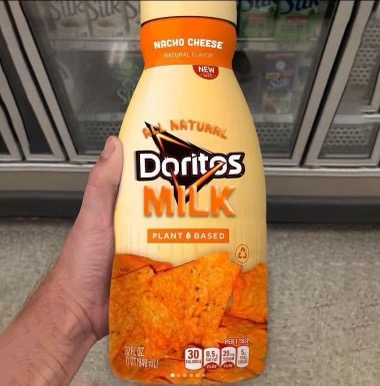

I feel like it’d be easier to core the dog first, then you’d have a slim hotdog! Dieters will love you.
Architectural designer interested in tech, design, software, etc.


I feel like it’d be easier to core the dog first, then you’d have a slim hotdog! Dieters will love you.
I’m a Logseq novice, but I’m happy to help workshop ideas.
If you’re just editing order and organizing thoughts you can reference blocks between pages with ((double parentheses)). Those could be as their own line/bullet, or even in-line with other text. So with that you could make a new page (or block in your daily journal) with new text summarizing your findings and block references to pull the previously taken notes in whatever order works best for you.
If you want the existing notes to be referenced but also cleaned up for presentation you could do that and use block references as mentioned, or you could use an Alias to link to the block while preserving its content. It depends on how you want to cite yourself, so to speak, and if you want to preserve your existing notes word for word.


I’ve done BOMA calculations for retail, office, and residential spaces and by god it’s a pain. And it doesn’t really always correlate to the perceived area/volume of the rental space which can definitely feel like a scam, so when he first said the real estate agents were lying I figured it was just a difference in gross vs net square footage. I thought I was right when he started measuring paint to paint, but then he said they were listed at 2 to 3 times the actual. That’s absolutely bonkers. The one guy at 10% “over” was likely listing gross, but I haven’t watched those videos yet. I can’t wait to dive in tomorrow at work!


I believe you can list a guest instance without logging in using Photon.


Re: orizuzu’s comment on python. I’m just starting out too and I’ve really enjoyed Automate the Boring Stuff. I have the course on Udemy, but he’s got the first chunk of it on YouTube if you want to try it out first. There is an accompanying book but I haven’t dived into it, just watching the videos for now. He does a good job of explaining concepts through simple examples that you can type out along with him, which he recommends. Good luck!


I tried omnivore for a bit because it’s pretty clean and seems to integrate well with other apps like Obsidian, Logseq, etc. but I found it to be a little too sparse. I’m currently using raindrop.ion and that’s hitting the sweet spot for me. I think a big part of it is that omnivore is geared strongly toward heavy readers, so as a designer I save a lot of things for viewing more than reading, and more of an archive for projects and thoughts than something to catch up with. And I’ve got my reading list, movie list, software list, and all sorts of others in there that it’s closer to a personal Pinterest than a read it later app.
It is a really nice app though so if someone’s in the market for a reading-first definitely check it out! I’m personally really digging my personal knowledge archive with raindrop.ion and think it’s worth checking out too!


If I were clever enough to host my own matrix server I would in a heartbeat. Bridges to WhatsApp, insta, fb, etc. are game changers.


I looked into the git plugin and Working Copy, but the app price pushed me to support the Logseq team. I’m totally cool paying for apps, though $25 isn’t a trivial cost for an experiment, and I just figured I could put that money toward the development of the app I want versus a third party workaround, for lack of a better word.
I do appreciate that it works with git though, and I’m tempted to try it out just for a fun weekend project.
Are there any plugins you’d recommend for Logseq?


Logseq is pretty similar to Obsidian, and it’s FOSS. It’s still really young, but I’ve enjoyed using it more than Obsidian for my personal note taking style. It’s block-based and focused on daily journals, so instead of folders of individual notes the tags/references become interlinked pages. It’s been cool to see my daily logs become a web of concepts. Syncing is a new function they’re adding for supporters, but it can be done with Syncthing if you’re nasty.
It’s definitely a different way of note taking than Keep or Joplin and maybe not for everyone, but I hope I’m at least doing it justice and piqued someone’s curiosity!


If you set your default search engine to Duck Duck Go you can use “!yt” followed by your search terms and it’ll go right to the results on YouTube. There’s a whole lot of other bangs, too. I do it with google maps all the time with “!gm.”
If you’re someone who likes these you’ll probably like This Past Weekend with Theo Von. He’s usually got really good guests, and his energy is different than his stand up. I’ve really enjoyed listening.

Recommend any particular spots in the UP? I’ve been thinking about making a trip from the Twin Cities.

Crabibble


This is fascinating, thanks so much for sharing!


These are fresh as hell. I’d love to see them more often!


It’s a wild time saver. I can’t believe other folks go to a whole separate app for their codes! Hitting Ctrl+L to autofill passwords and user names then Ctrl+V for TOTP feels like a hack when I watch other people struggle with their other solutions.


It’s so cheap! The value for the price is astounding.


Bitwarden is one I use several times a day. They do have a support plan for like $10 a year that gives a couple extra features like TOTP support, but the base level is incredibly robust. It’s open source, too. I know a lot of folks also host their own servers with Vaultwarden, but that’s a little beyond my skill level.
They say it’s open source on their main page and link to their Github. I haven’t personally vetted that fact, but I’ve yet to hear anything to the contrary so I believe it.
Too Much Information - The Police.